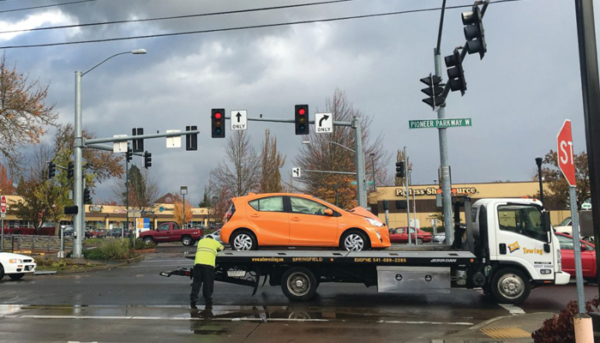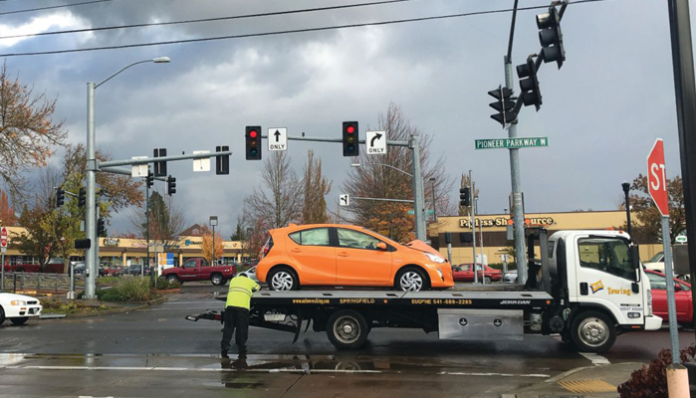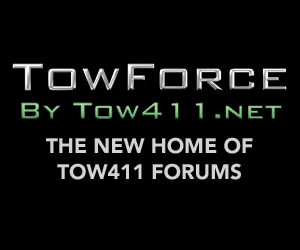 As I mentioned in last month’s article, I talked about finding tow truck drivers for the future. We all know our industry is short of drivers, and it’s time to fix the problem. I met with several tow company owners last week, and we talked at length about how to find drivers.
As I mentioned in last month’s article, I talked about finding tow truck drivers for the future. We all know our industry is short of drivers, and it’s time to fix the problem. I met with several tow company owners last week, and we talked at length about how to find drivers.
KEY QUESTIONS
I want to build a tech school for drivers and teach them our industry. When I mentioned the school, we all agreed a school was needed. The discussion was around the following key questions:
- How long should the course be?
- What material should be taught?
- Where can we find instructors?
- Where can we find students?
- Who will pay for the class?
RELEVANT COURSE CONTENT
I can’t begin to tell you about all the side discussions this generated, so I’ll share with you my idea about the school. I wanted it to be thorough and cover all the topics of our industry. I felt the course should run 8 weeks, and we cover things like:
- The different types of tows: police tows, repossessions, private property, motor clubs, body shops, consumer, and others
- The different types of trucks
- The requirements and equipment necessary to perform each type of tow
- The financial aspects of the business: expenses associated with each truck like gas and insurance, the cost of running a company, the value of the equipment for which they will be responsible
- The maintenance required for each truck and the importance of performing it consistently and proactively
- Dispatch’s role with each tow
- The importance of effective communication
- Customer relations: how to conduct themselves around customers, and the importance of personal appearance and how both relate to customer satisfaction.
- Safety for the customer, the driver, and others around the towing event.
COURSE STRUCTURE
I am meeting with Collin County Community college next week to see what it would take to establish a certified program for future towers. If we go through the college, we can provide the college with the materials and let them do the classroom training. There would be a classroom setting for only the 1st week. During weeks 2-5, there would be class for half a day and then a “hands on” for the other half. We have the location for the school, and it is a remote storage facility that can easily be turned into a classroom with plenty of vehicles to play with and room to have as many trucks as possible. Potential drivers would spend week 6 at the storage yard learning about all the paperwork necessary to do a tow and how to properly store and secure the car. Make cleaning up the yard part of their training. For the last week, they can work in a truck with a local company and earn a paycheck.
INSTRUCTORS
Who should the instructors be?
- For the class, we should use the college instructors
- When they attend the part of the class that at the tow yard, we could experience drivers for tow companies all over the U.S. A company could send a driver to teach, pay their expenses, and you get the 1st pick of a student graduating from the class.
- We could bring WreckMaster or any other certified instructor and let them teach.
If you are sending one of your drivers to teach, that could be a big perk for them and another patch they can wear showing the industry that they are a professor of towing.
POTENTIAL STUDENTS
Then there are the students that attend a class. Here are some ideas about finding future drivers:
- Former military
- People being released from prison
- Prospects from tow companies
- Other organizations that are trying to do job placement
FUNDING
The big question is where we get the money to pay for all of this. I’m sure there are some types of grants from the government. I know there are government agencies paying to place people in jobs. We asked tow companies in Texas if they would pay for a driver and they were not excited to do that.
This was my approach. It would take a while to set up, but all the major pieces are in place. We opened the meeting up to get more input from other tow companies. They all agree that we need to start training tow truck drivers for the future. One company said let’s give them the TDLR test, help them pass it, then let the tow company that hires them, train them. TDLR is a state agency that requires all tow truck drivers in Texas take a test before they get in a truck.
TRAINING YOUR OWN
If you train your own drivers (and I would do that when I had my company), they would learn all the good and bad habits of the driver that taught them. I also found that the teaching driver would make sure the new driver would not learn more than he or she knew. You know how drivers can be. The problem we have is we all need drivers now, and we want to rush to get them in a truck. One company suggested a week of “hands on” and then let them drive with another until the driver was ready. If I talked to ten different companies, I would get ten different ways to do this, but at the end of the day, we will start developing good drivers.
READER INPUT
Give me your ideas?
Please answer the following questions and send them to Dan@towtrax.net:
- How long should the course be?
- What material should be taught?
- Where can we find instructors?
- Where can we find students?
- Who will pay for the class?
Let’s work together and build a strong future for the industry.










